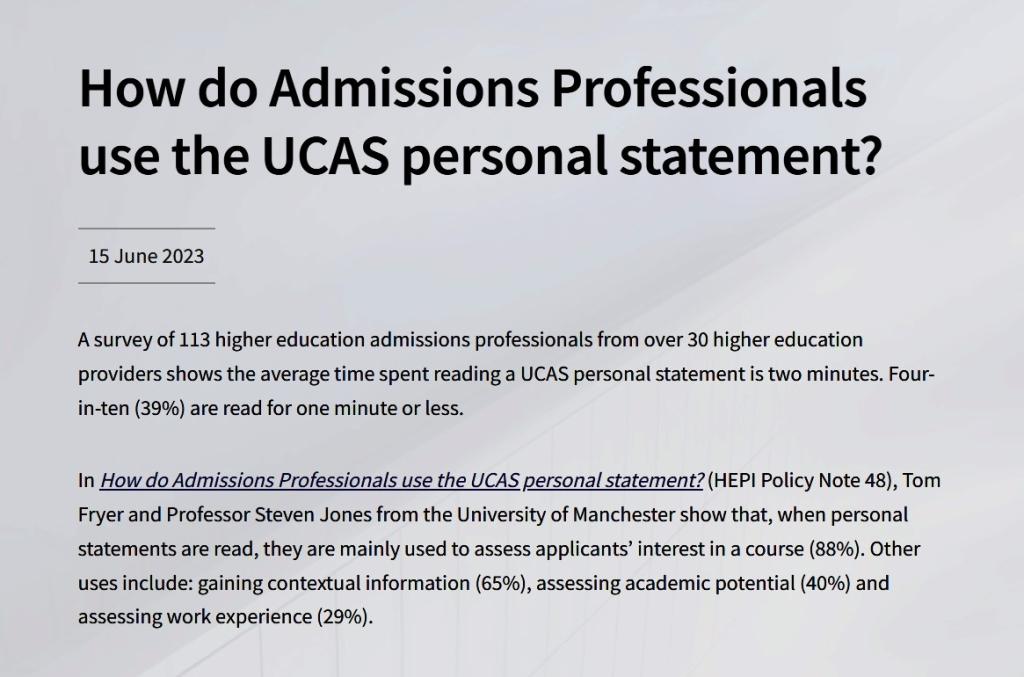I saw a report this week which carried a critical lesson if you want to write with real impact.
It was about how university admissions tutors read candidates’ personal statements as they apply for places.
You only have to look at the first two lines of the study to understand something fundamental concerning the art of powerful writing.

Yes, it may be shocking that those personal statements only get read for a couple of minutes, and often even less.
Particularly given how much work I know many students put into them.
And, indeed, how important they are in helping to determine a young person‘s future.
However unhappy, that’s not the key point I want to make here.
Instead, the finding is a powerful insight into so much of modern life.
Everyone is busy, with relentless demands on their time.
They usually don’t have the space needed to digest entire reports, briefings, or even personal statements, as in this case.
That might be annoying, and even worrying, but it’s the reality.
So we have to work with it.
Which brings me to this critical insight.
What’s the standard way to write a briefing?
Most people start with the background, explore the context, go on to look at an analysis, before finally drawing conclusions and making recommendations.
But what, of that list, is the most important part?
If you’re a boss, having yet another busy day, what is it that you most need?
The answer, as I expect you've decided, is the conclusions and recommendations.
In other words, this is what we need to do and why.
So, if you don’t put those at the start…
The most critical information is in danger of being missed.
You can always go back to the context, background et cetera.
But beginning with the essentials is a guaranteed way of making sure your writing has impact.
It’s a trick taken from the media trade.
Journalists are trained to start their stories with the most attention-grabbing, striking, and important information.
Again, in order to attract attention when they know their newspaper, website or broadcast station is up against stiff competition for an audience.
It’s known in the trade as the inverted pyramid structure.
The most important news comes first.
Boring, basic data always comes later.
So, if you were a student, putting together a personal statement now, given the findings in that report…
What would you lead off with?
Saying how much you like the University you're applying to?
Or talking about your hobby of international cookery?
No. In fact, very much no.
You'd want to start by making it clear how interested you are in that course.
Perhaps by highlighting any relevant societies you've joined, or field trips, or visits you've been on.
Maybe the reading around the subject which you've done.
In other words, showing your commitment to the subject.
And put that right at the start.
Because, as we now know, the tutor won’t spend long looking through your precious statement.
And if that’s the information they really want, make sure they can’t possibly miss it by getting it right there upfront.
When you’ve covered that, what next?
Contextual information, of course.
Because that’s what's next most important in the tutor’s mind.
Then it’s demonstrating your academic potential, then talking about any work experience.
In summary, the critical lessons from just that small part of a report are:
- Remember who your audience is when you’re writing.
- Make sure the most important information, the stuff they really need and are most interested in, is right there upfront and unmissable.
By the way, if you’re interested, the report comes from the Higher Education Policy Institute.
You can read more here.



